afterLoad (456.27KB) (5.28ms)
afterInitialise (1.27MB) (63.85ms)
afterRoute (826.8KB) (28.85ms)
beforeRenderComponent com_content (34.95KB) (315μs)
Before Access::preloadComponents (all components) (66.03KB) (4.37ms)
After Access::preloadComponents (all components) (98.44KB) (3.44ms)
Before Access::getAssetRules (id:8 name:com_content) (1.13KB) (29μs)
After Access::getAssetRules (id:8 name:com_content) (7.05KB) (56μs)
afterRenderComponent com_content (1.32MB) (375ms)
afterDispatch (17.3KB) (4.09ms)
beforeRenderRawModule mod_articles_category (READ MORE...) (435.25KB) (13.58ms)
afterRenderRawModule mod_articles_category (READ MORE...) (92.31KB) (88.92ms)
beforeRenderRawModule mod_custom (BOOST YOUR IMMUNE DEFENSE) (6.45KB) (36μs)
afterRenderRawModule mod_custom (BOOST YOUR IMMUNE DEFENSE) (3.8KB) (283μs)
beforeRenderRawModule mod_tags_popular (Search) (2.36KB) (17μs)
afterRenderRawModule mod_tags_popular (Search) (48.77KB) (118ms)
beforeRenderRawModule mod_custom (Get additionel and more detailed knowledge ) (816B) (31μs)
afterRenderRawModule mod_custom (Get additionel and more detailed knowledge ) (1.53KB) (49μs)
beforeRenderRawModule mod_custom (Overview of vitamins, minerals, and essential fatty acids) (768B) (11μs)
afterRenderRawModule mod_custom (Overview of vitamins, minerals, and essential fatty acids) (960B) (24μs)
beforeRenderRawModule mod_custom (Q10 goes by many names) (608B) (9μs)
afterRenderRawModule mod_custom (Q10 goes by many names) (928B) (19μs)
beforeRenderRawModule mod_custom (Check this before you buy a Q10 product) (752B) (9μs)
afterRenderRawModule mod_custom (Check this before you buy a Q10 product) (944B) (18μs)
beforeRenderRawModule mod_custom (Are you taking supplements) (736B) (9μs)
afterRenderRawModule mod_custom (Are you taking supplements) (1.03KB) (18μs)
beforeRenderRawModule mod_custom (Weight loss that works) (736B) (9μs)
afterRenderRawModule mod_custom (Weight loss that works) (1.03KB) (19μs)
beforeRenderRawModule mod_custom (Antiaging) (720B) (8μs)
afterRenderRawModule mod_custom (Antiaging) (912B) (17μs)
beforeRenderRawModule mod_menu (Are you getting enough vitamins and minerals?) (2.5KB) (12μs)
afterRenderRawModule mod_menu (Are you getting enough vitamins and minerals?) (23.02KB) (753μs)
beforeRenderRawModule mod_menu (The key to increased well-being) (736B) (22μs)
afterRenderRawModule mod_menu (The key to increased well-being) (17.83KB) (241μs)
beforeRenderRawModule mod_menu (Did you know.....) (720B) (1.06ms)
afterRenderRawModule mod_menu (Did you know.....) (25.52KB) (480μs)
beforeRenderRawModule mod_custom (Useful Links) (1.06KB) (18μs)
afterRenderRawModule mod_custom (Useful Links) (1.02KB) (38μs)
beforeRenderRawModule mod_custom (Chronic fatigue tied Alan to his bed but Q10 capsules saved him:) (259.35KB) (4.37ms)
afterRenderRawModule mod_custom (Chronic fatigue tied Alan to his bed but Q10 capsules saved him:) (1.06KB) (1.07ms)
beforeRenderModule mod_custom (Chronic fatigue tied Alan to his bed but Q10 capsules saved him:) (768B) (6μs)
afterRenderModule mod_custom (Chronic fatigue tied Alan to his bed but Q10 capsules saved him:) (1.3KB) (66μs)
beforeRenderRawModule mod_custom (Cholesterol-lowering without side effects:) (368B) (17μs)
afterRenderRawModule mod_custom (Cholesterol-lowering without side effects:) (1.06KB) (34μs)
beforeRenderModule mod_custom (Cholesterol-lowering without side effects:) (752B) (2μs)
afterRenderModule mod_custom (Cholesterol-lowering without side effects:) (1.28KB) (30μs)
beforeRenderModule mod_articles_category (READ MORE...) (20.82KB) (396μs)
afterRenderModule mod_articles_category (READ MORE...) (1.25KB) (40μs)
beforeRenderModule mod_custom (BOOST YOUR IMMUNE DEFENSE) (6.81KB) (13μs)
afterRenderModule mod_custom (BOOST YOUR IMMUNE DEFENSE) (1.28KB) (24μs)
beforeRenderModule mod_tags_popular (Search) (1.98KB) (11μs)
afterRenderModule mod_tags_popular (Search) (1.27KB) (21μs)
beforeRenderModule mod_custom (Get additionel and more detailed knowledge ) (1.17KB) (9μs)
afterRenderModule mod_custom (Get additionel and more detailed knowledge ) (1.3KB) (20μs)
beforeRenderModule mod_custom (Overview of vitamins, minerals, and essential fatty acids) (384B) (10μs)
afterRenderModule mod_custom (Overview of vitamins, minerals, and essential fatty acids) (1.31KB) (19μs)
beforeRenderModule mod_custom (Q10 goes by many names) (208B) (9μs)
afterRenderModule mod_custom (Q10 goes by many names) (1.27KB) (19μs)
beforeRenderModule mod_custom (Check this before you buy a Q10 product) (352B) (9μs)
afterRenderModule mod_custom (Check this before you buy a Q10 product) (1.28KB) (19μs)
beforeRenderModule mod_custom (Are you taking supplements) (352B) (9μs)
afterRenderModule mod_custom (Are you taking supplements) (1.28KB) (19μs)
beforeRenderModule mod_custom (Weight loss that works) (336B) (8μs)
afterRenderModule mod_custom (Weight loss that works) (1.27KB) (19μs)
beforeRenderModule mod_custom (Antiaging) (336B) (9μs)
afterRenderModule mod_custom (Antiaging) (3.77KB) (20μs)
beforeRenderModule mod_menu (Are you getting enough vitamins and minerals?) (2.13KB) (11μs)
afterRenderModule mod_menu (Are you getting enough vitamins and minerals?) (1.3KB) (26μs)
beforeRenderModule mod_menu (The key to increased well-being) (352B) (10μs)
afterRenderModule mod_menu (The key to increased well-being) (1.28KB) (19μs)
beforeRenderModule mod_menu (Did you know.....) (336B) (9μs)
afterRenderModule mod_menu (Did you know.....) (1.27KB) (19μs)
beforeRenderModule mod_custom (Useful Links) (1.44KB) (9μs)
afterRenderModule mod_custom (Useful Links) (1.27KB) (1.15ms)
beforeRenderRawModule mod_menu (Main Menu - English) (29.14KB) (846μs)
afterRenderRawModule mod_menu (Main Menu - English) (191.2KB) (4.25ms)
beforeRenderModule mod_menu (Main Menu - English) (720B) (7μs)
afterRenderModule mod_menu (Main Menu - English) (4.86KB) (68μs)
beforeRenderRawModule mod_languages (Sprogskift) (3.94KB) (22μs)
afterRenderRawModule mod_languages (Sprogskift) (22.38KB) (4.21ms)
beforeRenderModule mod_languages (Sprogskift) (720B) (8μs)
afterRenderModule mod_languages (Sprogskift) (5.31KB) (24μs)
beforeRenderRawModule mod_finder () (6.34KB) (14μs)
afterRenderRawModule mod_finder () (64.59KB) (7.82ms)
beforeRenderModule mod_finder () (704B) (3μs)
afterRenderModule mod_finder () (3.29KB) (31μs)
beforeRenderRawModule mod_custom () (6.62KB) (147μs)
afterRenderRawModule mod_custom () (26.51KB) (4ms)
beforeRenderModule mod_custom () (704B) (8μs)
afterRenderModule mod_custom () (1.23KB) (63μs)
beforeRenderRawModule mod_menu (Main Menu - English) (5.07KB) (145μs)
afterRenderRawModule mod_menu (Main Menu - English) (6.3KB) (2.07ms)
beforeRenderModule mod_menu (Main Menu - English) (720B) (7μs)
afterRenderModule mod_menu (Main Menu - English) (1.25KB) (63μs)
beforeRenderRawModule mod_languages (Sprogskift Mobil) (912B) (22μs)
afterRenderRawModule mod_languages (Sprogskift Mobil) (3.89KB) (1.56ms)
beforeRenderModule mod_languages (Sprogskift Mobil) (720B) (5μs)
afterRenderModule mod_languages (Sprogskift Mobil) (1.27KB) (43μs)
beforeRenderRawModule mod_finder () (2.3KB) (14μs)
afterRenderRawModule mod_finder () (6.29KB) (1.87ms)
beforeRenderModule mod_finder () (704B) (7μs)
afterRenderModule mod_finder () (1.23KB) (60μs)
beforeRenderRawModule mod_custom () (8.66KB) (208μs)
afterRenderRawModule mod_custom () (904B) (174μs)
beforeRenderModule mod_custom () (704B) (3μs)
afterRenderModule mod_custom () (2.43KB) (28μs)
beforeRenderRawModule mod_custom () (688B) (303μs)
afterRenderRawModule mod_custom () (896B) (138μs)
beforeRenderModule mod_custom () (704B) (2μs)
afterRenderModule mod_custom () (2.71KB) (28μs)
afterRender (340.44KB) (17.26ms)
| 1 x afterRenderComponent com_content (1.32MB) (48.87%) | 375.12ms |
| 1 x afterRenderRawModule mod_tags_popular (Search) (48.77KB) (15.38%) | 118.04ms |
| 1 x afterRenderRawModule mod_articles_category (READ MORE...) (92.31KB) (11.58%) | 88.92ms |
| 1 x afterInitialise (1.27MB) (8.32%) | 63.85ms |
| 1 x afterRoute (826.8KB) (3.76%) | 28.85ms |
| 1 x afterRender (340.44KB) (2.25%) | 17.26ms |
| 1 x beforeRenderRawModule mod_articles_category (READ MORE...) (435.25KB) (1.77%) | 13.58ms |
| 1 x afterRenderRawModule mod_finder () (64.59KB) (1.02%) | 7.82ms |
| 1 x afterLoad (456.27KB) (0.69%) | 5.28ms |
| 1 x Before Access::preloadComponents (all components) (66.03KB) (0.57%) | 4.37ms |
| 1 x beforeRenderRawModule mod_custom (Chronic fatigue tied Alan to his bed but Q10 capsules saved him:) (259.35KB) (0.57%) | 4.37ms |
| 1 x afterRenderRawModule mod_menu (Main Menu - English) (191.2KB) (0.55%) | 4.25ms |
| 1 x afterRenderRawModule mod_languages (Sprogskift) (22.38KB) (0.55%) | 4.21ms |
| 1 x afterDispatch (17.3KB) (0.53%) | 4.09ms |
| 1 x afterRenderRawModule mod_custom () (26.51KB) (0.52%) | 4.00ms |
| 1 x After Access::preloadComponents (all components) (98.44KB) (0.45%) | 3.44ms |
| 1 x afterRenderRawModule mod_menu (Main Menu - English) (6.3KB) (0.27%) | 2.07ms |
| 1 x afterRenderRawModule mod_finder () (6.29KB) (0.24%) | 1.87ms |
| 1 x afterRenderRawModule mod_languages (Sprogskift Mobil) (3.89KB) (0.2%) | 1.56ms |
| 1 x afterRenderModule mod_custom (Useful Links) (1.27KB) (0.15%) | 1.15ms |
| 1 x afterRenderRawModule mod_custom (Chronic fatigue tied Alan to his bed but Q10 capsules saved him:) (1.06KB) (0.14%) | 1.07ms |
| 1 x beforeRenderRawModule mod_menu (Did you know.....) (720B) (0.14%) | 1.06ms |
| 1 x beforeRenderRawModule mod_menu (Main Menu - English) (29.14KB) (0.11%) | 846μs |
| 1 x afterRenderRawModule mod_menu (Are you getting enough vitamins and minerals?) (23.02KB) (0.1%) | 753μs |
| 1 x afterRenderRawModule mod_menu (Did you know.....) (25.52KB) (0.06%) | 480μs |
| 1 x beforeRenderModule mod_articles_category (READ MORE...) (20.82KB) (0.05%) | 396μs |
| 1 x beforeRenderComponent com_content (34.95KB) (0.04%) | 315μs |
| 1 x beforeRenderRawModule mod_custom () (688B) (0.04%) | 303μs |
| 1 x afterRenderRawModule mod_custom (BOOST YOUR IMMUNE DEFENSE) (3.8KB) (0.04%) | 283μs |
| 1 x afterRenderRawModule mod_menu (The key to increased well-being) (17.83KB) (0.03%) | 241μs |
| 1 x beforeRenderRawModule mod_custom () (8.66KB) (0.03%) | 208μs |
| 1 x afterRenderRawModule mod_custom () (904B) (0.02%) | 174μs |
| 1 x beforeRenderRawModule mod_custom () (6.62KB) (0.02%) | 147μs |
| 1 x beforeRenderRawModule mod_menu (Main Menu - English) (5.07KB) (0.02%) | 145μs |
| 1 x afterRenderRawModule mod_custom () (896B) (0.02%) | 138μs |
| 1 x afterRenderModule mod_menu (Main Menu - English) (4.86KB) (0.01%) | 68μs |
| 1 x afterRenderModule mod_custom (Chronic fatigue tied Alan to his bed but Q10 capsules saved him:) (1.3KB) (0.01%) | 66μs |
| 1 x afterRenderModule mod_custom () (1.23KB) (0.01%) | 63μs |
| 1 x afterRenderModule mod_menu (Main Menu - English) (1.25KB) (0.01%) | 63μs |
| 1 x afterRenderModule mod_finder () (1.23KB) (0.01%) | 60μs |
| 1 x After Access::getAssetRules (id:8 name:com_content) (7.05KB) (0.01%) | 56μs |
| 1 x afterRenderRawModule mod_custom (Get additionel and more detailed knowledge ) (1.53KB) (0.01%) | 49μs |
| 1 x afterRenderModule mod_languages (Sprogskift Mobil) (1.27KB) (0.01%) | 43μs |
| 1 x afterRenderModule mod_articles_category (READ MORE...) (1.25KB) (0.01%) | 40μs |
| 1 x afterRenderRawModule mod_custom (Useful Links) (1.02KB) (0%) | 38μs |
| 1 x beforeRenderRawModule mod_custom (BOOST YOUR IMMUNE DEFENSE) (6.45KB) (0%) | 36μs |
| 1 x afterRenderRawModule mod_custom (Cholesterol-lowering without side effects:) (1.06KB) (0%) | 34μs |
| 1 x beforeRenderRawModule mod_custom (Get additionel and more detailed knowledge ) (816B) (0%) | 31μs |
| 1 x afterRenderModule mod_finder () (3.29KB) (0%) | 31μs |
| 1 x afterRenderModule mod_custom (Cholesterol-lowering without side effects:) (1.28KB) (0%) | 30μs |
| 1 x Before Access::getAssetRules (id:8 name:com_content) (1.13KB) (0%) | 29μs |
| 1 x afterRenderModule mod_custom () (2.71KB) (0%) | 28μs |
| 1 x afterRenderModule mod_custom () (2.43KB) (0%) | 28μs |
| 1 x afterRenderModule mod_menu (Are you getting enough vitamins and minerals?) (1.3KB) (0%) | 26μs |
| 1 x afterRenderRawModule mod_custom (Overview of vitamins, minerals, and essential fatty acids) (960B) (0%) | 24μs |
| 1 x afterRenderModule mod_languages (Sprogskift) (5.31KB) (0%) | 24μs |
| 1 x afterRenderModule mod_custom (BOOST YOUR IMMUNE DEFENSE) (1.28KB) (0%) | 24μs |
| 1 x beforeRenderRawModule mod_menu (The key to increased well-being) (736B) (0%) | 22μs |
| 1 x beforeRenderRawModule mod_languages (Sprogskift) (3.94KB) (0%) | 22μs |
| 1 x beforeRenderRawModule mod_languages (Sprogskift Mobil) (912B) (0%) | 22μs |
| 1 x afterRenderModule mod_tags_popular (Search) (1.27KB) (0%) | 21μs |
| 1 x afterRenderModule mod_custom (Get additionel and more detailed knowledge ) (1.3KB) (0%) | 20μs |
| 1 x afterRenderModule mod_custom (Antiaging) (3.77KB) (0%) | 20μs |
| 1 x afterRenderRawModule mod_custom (Q10 goes by many names) (928B) (0%) | 19μs |
| 1 x afterRenderRawModule mod_custom (Weight loss that works) (1.03KB) (0%) | 19μs |
| 1 x afterRenderModule mod_custom (Overview of vitamins, minerals, and essential fatty acids) (1.31KB) (0%) | 19μs |
| 1 x afterRenderModule mod_custom (Check this before you buy a Q10 product) (1.28KB) (0%) | 19μs |
| 1 x afterRenderModule mod_custom (Are you taking supplements) (1.28KB) (0%) | 19μs |
| 1 x afterRenderModule mod_menu (The key to increased well-being) (1.28KB) (0%) | 19μs |
| 1 x afterRenderModule mod_custom (Q10 goes by many names) (1.27KB) (0%) | 19μs |
| 1 x afterRenderModule mod_custom (Weight loss that works) (1.27KB) (0%) | 19μs |
| 1 x afterRenderModule mod_menu (Did you know.....) (1.27KB) (0%) | 19μs |
| 1 x afterRenderRawModule mod_custom (Check this before you buy a Q10 product) (944B) (0%) | 18μs |
| 1 x afterRenderRawModule mod_custom (Are you taking supplements) (1.03KB) (0%) | 18μs |
| 1 x beforeRenderRawModule mod_custom (Useful Links) (1.06KB) (0%) | 18μs |
| 1 x beforeRenderRawModule mod_custom (Cholesterol-lowering without side effects:) (368B) (0%) | 17μs |
| 1 x beforeRenderRawModule mod_tags_popular (Search) (2.36KB) (0%) | 17μs |
| 1 x afterRenderRawModule mod_custom (Antiaging) (912B) (0%) | 17μs |
| 2 x beforeRenderModule mod_menu (Main Menu - English) (720B) (0%) | 14μs |
| 1 x beforeRenderRawModule mod_finder () (2.3KB) (0%) | 14μs |
| 1 x beforeRenderRawModule mod_finder () (6.34KB) (0%) | 14μs |
| 1 x beforeRenderModule mod_custom (BOOST YOUR IMMUNE DEFENSE) (6.81KB) (0%) | 13μs |
| 3 x beforeRenderModule mod_custom () (704B) (0%) | 13μs |
| 1 x beforeRenderRawModule mod_menu (Are you getting enough vitamins and minerals?) (2.5KB) (0%) | 12μs |
| 1 x beforeRenderRawModule mod_custom (Overview of vitamins, minerals, and essential fatty acids) (768B) (0%) | 11μs |
| 1 x beforeRenderModule mod_tags_popular (Search) (1.98KB) (0%) | 11μs |
| 1 x beforeRenderModule mod_menu (Are you getting enough vitamins and minerals?) (2.13KB) (0%) | 11μs |
| 1 x beforeRenderModule mod_custom (Overview of vitamins, minerals, and essential fatty acids) (384B) (0%) | 10μs |
| 1 x beforeRenderModule mod_menu (The key to increased well-being) (352B) (0%) | 10μs |
| 2 x beforeRenderModule mod_finder () (704B) (0%) | 10μs |
| 1 x beforeRenderRawModule mod_custom (Q10 goes by many names) (608B) (0%) | 9μs |
| 1 x beforeRenderRawModule mod_custom (Are you taking supplements) (736B) (0%) | 9μs |
| 1 x beforeRenderRawModule mod_custom (Weight loss that works) (736B) (0%) | 9μs |
| 1 x beforeRenderModule mod_custom (Q10 goes by many names) (208B) (0%) | 9μs |
| 1 x beforeRenderModule mod_custom (Check this before you buy a Q10 product) (352B) (0%) | 9μs |
| 1 x beforeRenderModule mod_custom (Antiaging) (336B) (0%) | 9μs |
| 1 x beforeRenderModule mod_menu (Did you know.....) (336B) (0%) | 9μs |
| 1 x beforeRenderModule mod_custom (Useful Links) (1.44KB) (0%) | 9μs |
| 1 x beforeRenderRawModule mod_custom (Check this before you buy a Q10 product) (752B) (0%) | 9μs |
| 1 x beforeRenderModule mod_custom (Get additionel and more detailed knowledge ) (1.17KB) (0%) | 9μs |
| 1 x beforeRenderModule mod_custom (Are you taking supplements) (352B) (0%) | 9μs |
| 1 x beforeRenderModule mod_custom (Weight loss that works) (336B) (0%) | 8μs |
| 1 x beforeRenderRawModule mod_custom (Antiaging) (720B) (0%) | 8μs |
| 1 x beforeRenderModule mod_languages (Sprogskift) (720B) (0%) | 8μs |
| 1 x beforeRenderModule mod_custom (Chronic fatigue tied Alan to his bed but Q10 capsules saved him:) (768B) (0%) | 6μs |
| 1 x beforeRenderModule mod_languages (Sprogskift Mobil) (720B) (0%) | 5μs |
| 1 x beforeRenderModule mod_custom (Cholesterol-lowering without side effects:) (752B) (0%) | 2μs |
 Magnesium plays a vital role in the body’s calcium distribution and is involved in over 300 enzyme processes that are relevant for our bones, circulatory system, muscles, nervous system, blood pressure, blood sugar levels, immune system, and utilization of vitamin D. For that reason, too little magnesium increases your risk of osteoporosis, diabetes, cardiovascular disease, migraine headaches, infections, PMS, plus anxiety and other neurological disorders. This is highlighted in a review article published by Medical News Today. It is therefore important to be aware of all the overlooked factors that may cause a magnesium deficiency.
Magnesium plays a vital role in the body’s calcium distribution and is involved in over 300 enzyme processes that are relevant for our bones, circulatory system, muscles, nervous system, blood pressure, blood sugar levels, immune system, and utilization of vitamin D. For that reason, too little magnesium increases your risk of osteoporosis, diabetes, cardiovascular disease, migraine headaches, infections, PMS, plus anxiety and other neurological disorders. This is highlighted in a review article published by Medical News Today. It is therefore important to be aware of all the overlooked factors that may cause a magnesium deficiency.







 According to WHO, sepsis is the third-most common cause of death, following cardiovascular disease and death. Sepsis is a result of the immune defense overreacting to an infection in the bloodstream. According to a new Slovakian study published in Bratislava Medical Journal, if you start supplementing with
According to WHO, sepsis is the third-most common cause of death, following cardiovascular disease and death. Sepsis is a result of the immune defense overreacting to an infection in the bloodstream. According to a new Slovakian study published in Bratislava Medical Journal, if you start supplementing with 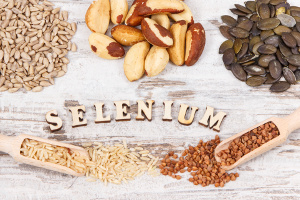 The trace element
The trace element 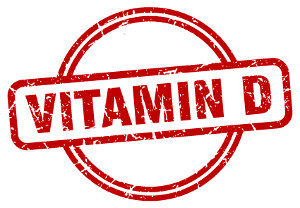 Hashimoto’s disease (Hashimoto’s thyroiditis) is an overlooked scourge that leads to hypothyroidism and is particularly widespread among women. Postpartum thyroiditis that also slows down your metabolism follows in the wake of pregnancy. Graves’ disease where the metabolism speeds up (hyperthyroidism) is less common. These three thyroid disorders belong to the group of autoimmune disorders where the immune defense attacks the body’s tissues, and it appears that lack of
Hashimoto’s disease (Hashimoto’s thyroiditis) is an overlooked scourge that leads to hypothyroidism and is particularly widespread among women. Postpartum thyroiditis that also slows down your metabolism follows in the wake of pregnancy. Graves’ disease where the metabolism speeds up (hyperthyroidism) is less common. These three thyroid disorders belong to the group of autoimmune disorders where the immune defense attacks the body’s tissues, and it appears that lack of 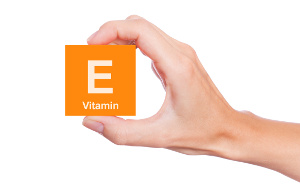 According to an article that is published in StatPearls,
According to an article that is published in StatPearls,  Many men suffer from erectile dysfunction, a problem that often foreshadows cardiovascular disorders. It appears that
Many men suffer from erectile dysfunction, a problem that often foreshadows cardiovascular disorders. It appears that  Premature delivery increases the baby’s risk of being born with developmental disturbances or dying within its first months of life. It is commonly known that
Premature delivery increases the baby’s risk of being born with developmental disturbances or dying within its first months of life. It is commonly known that 
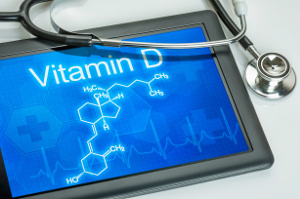 The summer sun is our most important source of
The summer sun is our most important source of 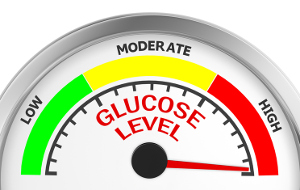 Type 2 diabetes is spreading like a bushfire and even more people suffer from something called metabolic syndrome, a prediabetic stage characterized by insulin resistance, hypertension, elevated cholesterol, and apple-shaped figure caused by a blood sugar imbalance.
Type 2 diabetes is spreading like a bushfire and even more people suffer from something called metabolic syndrome, a prediabetic stage characterized by insulin resistance, hypertension, elevated cholesterol, and apple-shaped figure caused by a blood sugar imbalance.  Ageing is linked to uncontrolled, low-grade inflammation, also known as inflammaging, according to articles published in the journals Nature Medicine and Ageing and Disease. Although chronic inflammation is not felt directly it may set the stage for cardiovascular disease, rheumatism, Alzheimer’s disease, and cancer. Chronic inflammation may also cause virus infections like influenza and COVID-19 to become life-threatening because the immune defense suddenly overreacts and attacks healthy tissue. It is therefore vital for ageing people to protect themselves against chronic inflammation, which means getting plenty of vitamin D, selenium, coenzyme Q10, zinc, omega-3, and melatonin. These are all things that many older people often lack.
Ageing is linked to uncontrolled, low-grade inflammation, also known as inflammaging, according to articles published in the journals Nature Medicine and Ageing and Disease. Although chronic inflammation is not felt directly it may set the stage for cardiovascular disease, rheumatism, Alzheimer’s disease, and cancer. Chronic inflammation may also cause virus infections like influenza and COVID-19 to become life-threatening because the immune defense suddenly overreacts and attacks healthy tissue. It is therefore vital for ageing people to protect themselves against chronic inflammation, which means getting plenty of vitamin D, selenium, coenzyme Q10, zinc, omega-3, and melatonin. These are all things that many older people often lack. "After about one week of taking the Q10 supplement I could feel a huge difference," says 23-year old Alan Piccini, who has been suffering from extreme fatigue and muscle aches ever since he was a child.
"After about one week of taking the Q10 supplement I could feel a huge difference," says 23-year old Alan Piccini, who has been suffering from extreme fatigue and muscle aches ever since he was a child. “Taking capsules with co-enzyme Q10 has freed me of the severe side effects of my cholesterol lowering medicine,” Mrs Franken explains.
“Taking capsules with co-enzyme Q10 has freed me of the severe side effects of my cholesterol lowering medicine,” Mrs Franken explains.